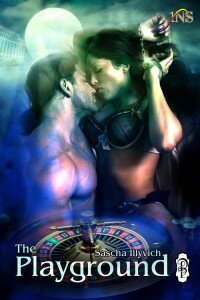Hi Folks,
How has your new year started off? Have you made writer resolutions for more sales, more releases, more books to be read? Or are you swamped like I am even though it’s only the first week of the year? LOL!
 My biggest news right now is that The Playground is released through Decadent Publishing! The 1Night Stand series is apparently very popular and when I met Kate Richards and Valerie Mann at Erotic Authors Association Con in Vegas last year, they convinced me to write something for them.
My biggest news right now is that The Playground is released through Decadent Publishing! The 1Night Stand series is apparently very popular and when I met Kate Richards and Valerie Mann at Erotic Authors Association Con in Vegas last year, they convinced me to write something for them.
One of the biggest factors writers need to realize when they start writing a new book is the time commitment to it . Usually I cover craft on WriteSEX but I think we should talk a little on the business side of things too for this article. In a previous Authors Promoting Authors blog post I had talked about research and looking at things from the standpoint of ROI on TIME invested in a book. Being efficient is key when writing because as we’ve covered before, true wealth can be had by a writer but it takes a LOT of work and so few writers actually amount massive wealth. I pointed out eh importance of education on topics such as BDSM or psychology in the APA blog so that once you sit down to write a story, you don’t have to stop and research, thus breaking your train of thought.
After all, train of thought in writing gets the words on the paper. But if you have to stop and look up the term SAM, maybe you don’t know what it is and have no sense of which websites are reliable, so more time spent on research, which affects plotting and character development in the long run. Everything as a writer that you do should be measured in terms of return on investment.
You are a writer, an artist yes. but the truth of the matter is, many of you have this goal and desire to be a decently paid if not well paid author and the only way to truly meet that goal is with proper planning, self discipline and keeping your ass in the chair and pounding out the words. Oceania, our Audio Goddess, did a post last year on deadlines and writer’s block that I think will help from time to time. Continue with your education to learn what works and what doesn’t.
So, set your goals, write them down! Put them someplace where you’ll find them a year from now.
Sascha Illyvich


 World Building. Most think it’s just for epic fantasy, or even dark fantasy. As a paranormal romance author, world building is, as they say, 9/10 of the law. Without it, characters are not believable, nor is the story in general. In my coming posts we will talk about suspension of disbelief, character development, and building a world from the ground up, but for now I want to talk about the necessity of world building, in any story setting.
World Building. Most think it’s just for epic fantasy, or even dark fantasy. As a paranormal romance author, world building is, as they say, 9/10 of the law. Without it, characters are not believable, nor is the story in general. In my coming posts we will talk about suspension of disbelief, character development, and building a world from the ground up, but for now I want to talk about the necessity of world building, in any story setting.



Recent Comments